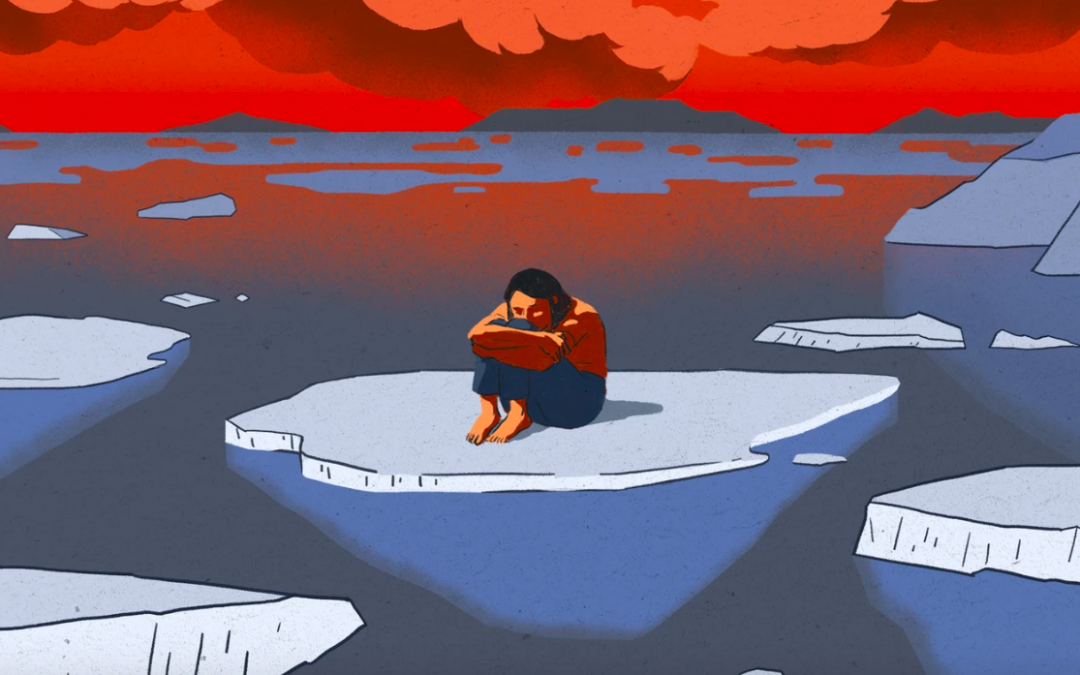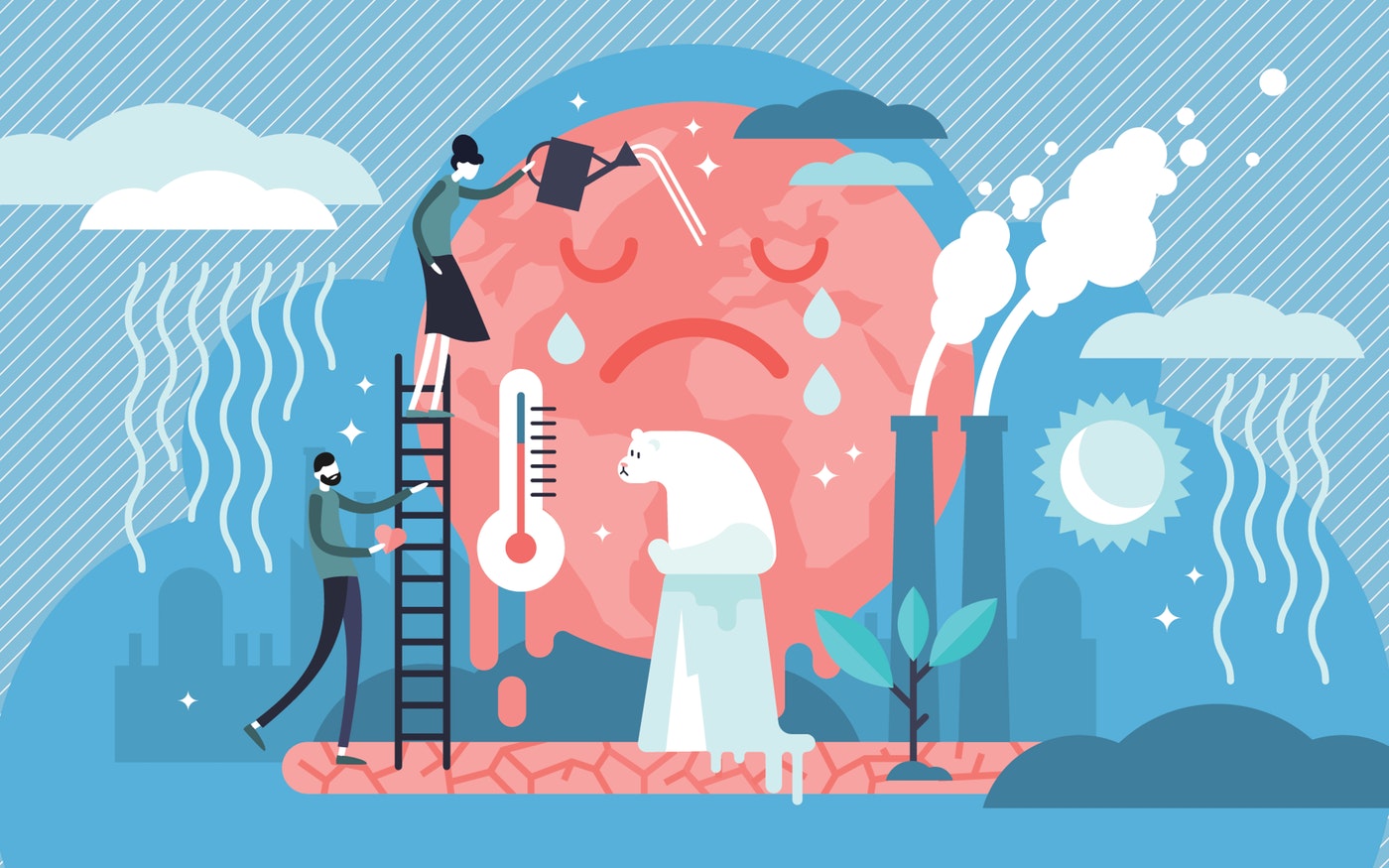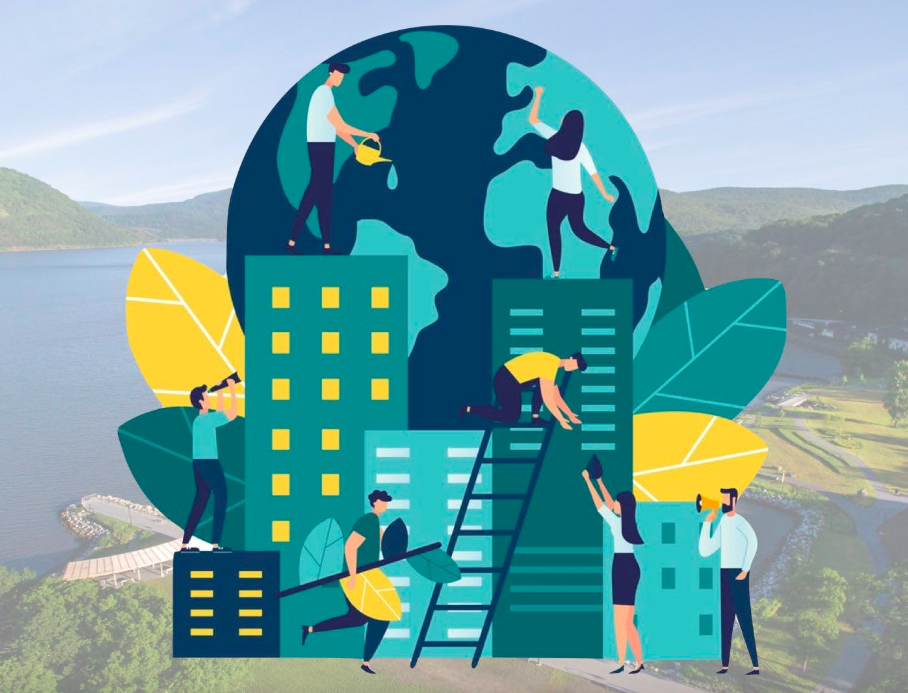The times we’re living in can feel really, really scary. Between the fires in Australia and the flooding in Great Britain, 2020’s news outlets have been saturated with abundant stories of environmental destruction. This heavy, unending onslaught of bad news might leave you feeling sad, or hopeless, or guilty, or angry, all of the above… or you might just feel tired.
Even if you’re not directly affected by climate change in our little rainy corner of the globe, you’re not alone if the state of the world has you feeling uprooted. Eco-anxiety, climate anxiety, solastalgia: they all describe the distressing feelings caused by the impacts of climate change and environmental degradation. It’s a common reaction to the changes we’re witnessing in our environment today.
Eco-anxiety is not pathological. Experiencing eco-anxiety is a sign that you’re a compassionate individual, capable of empathizing with others. This said, it’s not purely selfless. It’s only logical to have a vested interest in the future of our planet. After all, as a part of the natural world, we rely heavily upon our environment’s survival for our own survival. As psychology professor Janet Swim notes, we feel anxious when we get closer to ‘anti-goals’, or negative results… such as the destruction of the environment. It’s human.
As an already-overextended student, engaging with horrible news about the world can feel exhausting, and might leave you wanting to turn away from looking at the problems altogether. If you’ve ever helped a friend through a really difficult time, or cared for a sick loved one, the stress-related symptoms of compassion fatigue are likely more than familiar: poor sleep, irritability, erratic moods. Compassion fatigue is a term for the stress that results from overextending ourselves and our compassion. Being overstressed, anxious, and uncertain has been shown to reduce how empathetic we’re able to be. This stress can become a black hole: it absorbs compassion, leaving nothing in return but empty, apathetic space.
So how can you stay engaged with the world, and feel active and helpful, while maintaining your mental health?
The American Psychological Association (APA) says that the best way to protect against climate anxiety, and to remedy it when it’s already occurring, is to develop more psychological resiliency. Resiliency is a psychological trait which enables us to better handle stressors in life, environmental or otherwise. It enables us to ‘bounce back’ and grow beyond struggles in an active, engaged way. The APA breaks down resilience-building into four major categories: connection, wellness, healthy thinking, and purpose.
Different strategies can be taken in each of these four categories to help assuage the uncomfortable symptoms of eco-anxiety:
CONNECTION
1. Talk about it. Studies have shown that discussing eco-anxiety can help to alleviate the negative feelings that are associated with it. This could be with a friend, a counsellor, a Peer Supporter, or anyone you feel safe talking to.
2. Find community. Social support has been implicated in so many studies as a necessary feature in developing high levels of psychological resilience. Here’s a guide for how to establish community on-campus.
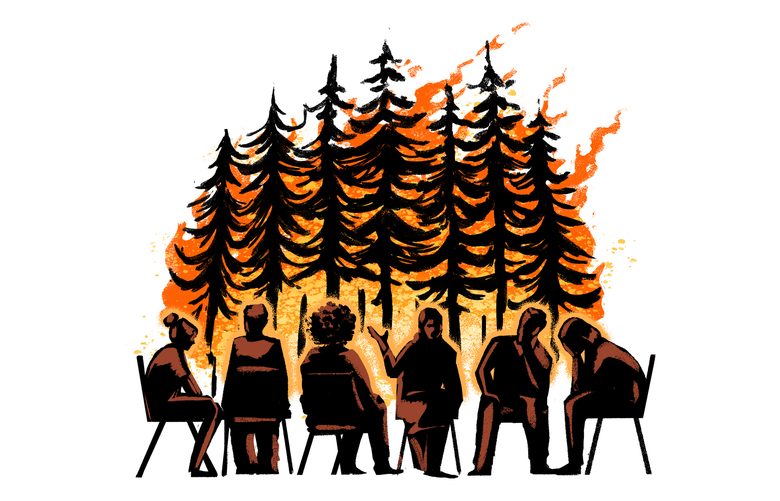
Source: Seattle Times

Source: GenderIT
WELLNESS
1. Take care of your body. Psychological stressors can feel so much more overwhelming when your physical body is also under stress. I try to check in with myself when I’m feeling overwhelmed: when was the last time I had a glass of water? A meal? A vegetable? Am I getting enough sleep?
3. Maintain boundaries. Being ‘on’ all the time isn’t sustainable for most people. If you’re engaging in activism and educating yourself on heavy material, it’s important to make time to do things that bring you joy and help you relax. It can sometimes feel shameful to put up boundaries around your time and energy, but setting boundaries is super important in keeping compassion fatigue at bay. Take breaks when you need them.
FIND PURPOSE
1. Get involved. As previously mentioned social engagement is really beneficial to our mental health. Participating in social action can help increase sense of agency, in addition to restoring connection with community. If protesting isn’t your style, getting involved could also mean participating in a community beach cleanup or joining an on-campus environmental initiative like Community Cabbage.
2. Practice green behaviours. Though I could talk for a long time about why individual approaches aren’t the most adequate solution to a problem that is ultimately systemic, research on motivational psychology shows that maintaining an internal locus of control is really, really important for our well-being. Finding small, daily ways to engage on an individual level, like limiting plastic consumption, picking up trash on the way to class, and opting to walk or bike when possible, can help to defend against eco-anxiety-induced hopelessness, and aligns our actions with our values.
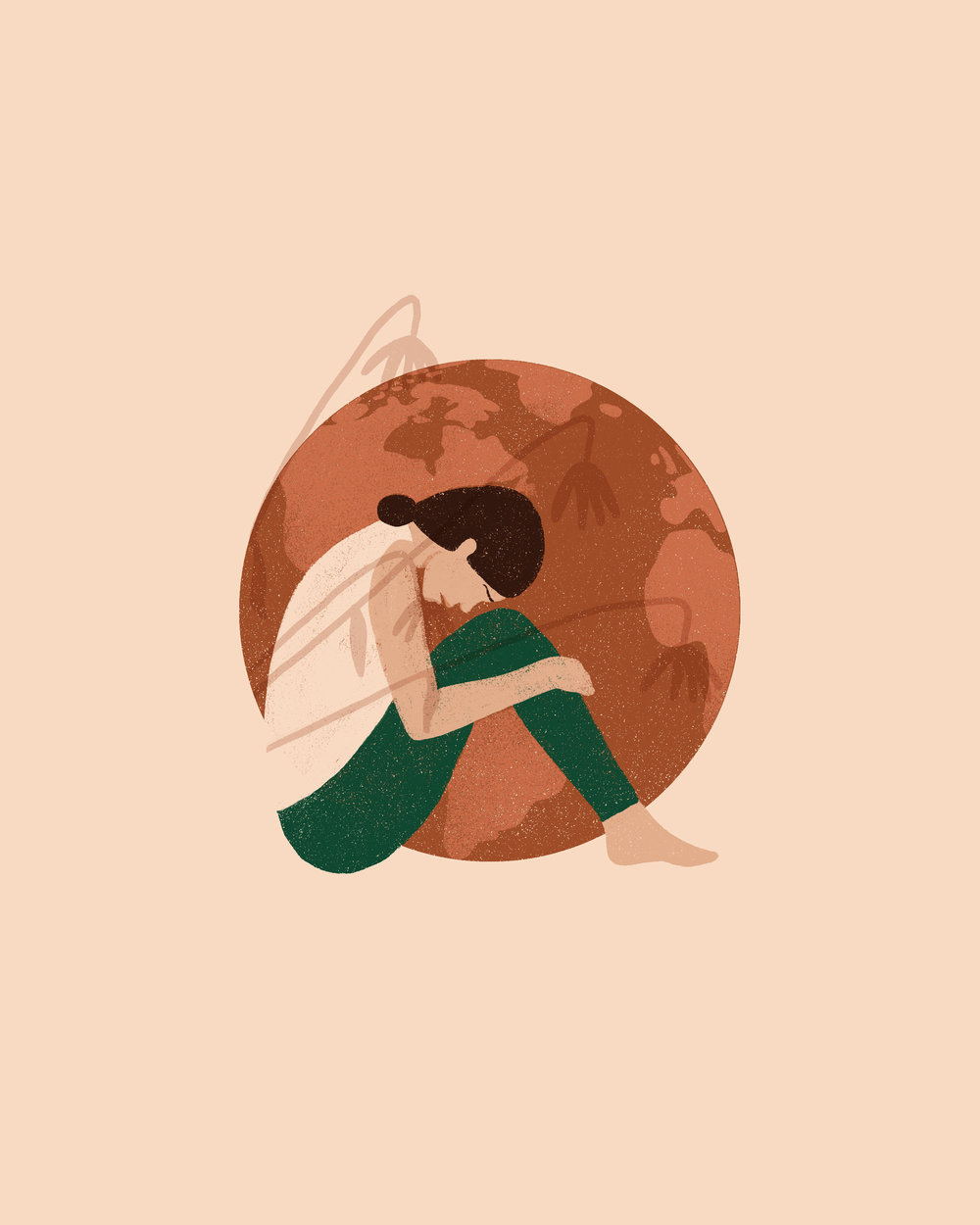
Source: Kaur. Space
HEALTHY THINKING
1. Be gentle with yourself. Nobody is perfect 100% of the time! It’s more important to be imperfectly and sustainably ethical, than perfectly and unsustainably ethical.
2. Hope is powerful. Maintaining a positive mindset is a lot easier said than done, but being hopeful is an incredibly powerful tool that helps us put our goals into action. APA recommends visualizing what you want instead of focusing on what you fear.
3. Keep things in perspective. It’s not your job to change the world. Things are often outside of our control… we can only change how we respond to them.
Looking for support on-campus?
- UVic Counselling Services offers professional, free counselling support for UVic students.
- UVic Health Services offers drop-in and appointment-based psychiatric care.
- UVic Multifaith Services foster community and provide religious and spiritual support and spiritual care for the students and staff at the University of Victoria.
- The Peer Support Centre is run by students and offers one-on-one discussion in a safe, welcoming and open environment.
The views expressed in this blog are my own, and do not necessarily reflect the policies or views of the University of Victoria. I monitor posts and comments to ensure all content complies with the University of Victoria Guidelines on Blogging.
